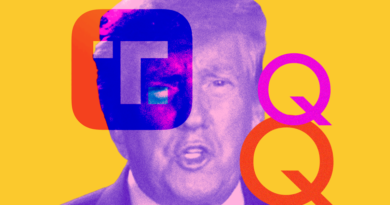QAnon Proves Its Resilience

After the attacks of Jan. 6, commentators on the far right papered over the violence at the Capitol by saying that it had been a ploy, cooked up by left-wing activists and anarchists in antifa (itself an ideology, by the way, more than a real organization). And the lies have stuck: A poll last month from USA Today and Suffolk University found that nearly three-fifths of all Trump voters believed the Jan. 6 riot had been “mostly an antifa-inspired attack that only involved a few Trump supporters.”
This time around, seeing that it might not be wise to bring a group of fervid supporters to Washington for the arrival of a leader who doesn’t show up, QAnon influencers have gotten out in front of the problem — making a similar set of claims about antifa, but ahead of time.
For Rachel Kleinfeld, a senior fellow in the Democracy, Conflict and Governance Program at the Carnegie Endowment for International Peace, this is just one more sign of how malleable — and potentially long-lasting — the QAnon conspiracy theory appears to be.
“What’s really worrisome about QAnon is that it’s basically a choose-your-own-adventure,” she said. “It allows people to co-create a conspiracy that gives them a strong sense of positive community and belonging, in a world that’s very isolated.”
“And it’s a community in which there’s an idea, rather like an improv group, to say, ‘Yes, and’ — not, ‘No, but,’” Kleinfeld said. “If someone throws out an idea, others are encouraged to build on it. That suggests a long life, a durability.”
Even as its original creator has seemingly stepped aside, QAnon’s supporters have become embedded within a range of far-right communities. That, Kleinfeld explained, is also making it stronger.
“A number of entities fuel QAnon,” she said. “There’s the moms’ anti-pedophilia groups, there’s the men-protecting-their-families groups, there’s the anti-vaxxers, the evangelicals. But they’re amplified by the officials who benefit from them. And the Republican Party has had a number of operatives that have benefited and therefore amplified Q.”
*** This article has been archived for your research. The original version from The New York Times can be found here ***


